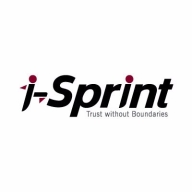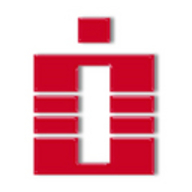

Both i-Sprint AccessMatrix Universal Access Management and Imprivata OneSign compete in the identity and access management category. Imprivata OneSign seems to have the upper hand due to its advanced features that justify its higher price.
Features: i-Sprint AccessMatrix Universal Access Management users highlight its comprehensive identity and access management capabilities, multi-factor authentication, and seamless integration with existing systems. Imprivata OneSign is praised for its single sign-on efficiency, secure authentication measures, and industry-specific feature set, especially in healthcare settings.
Room for Improvement: i-Sprint AccessMatrix Universal Access Management can benefit from a more intuitive design, enhanced documentation, and better user experience. Imprivata OneSign could improve by offering expanded customization options, more frequent updates, and better integration with third-party applications.
Ease of Deployment and Customer Service: i-Sprint AccessMatrix Universal Access Management is noted for its straightforward deployment process and responsive support team. Imprivata OneSign garners positive feedback for its smooth implementation in complex IT environments and its knowledgeable customer service.
Pricing and ROI: i-Sprint AccessMatrix Universal Access Management is appreciated for its competitive initial setup costs and solid ROI over time. Imprivata OneSign, while more expensive upfront, is viewed as delivering significant long-term value, particularly in sectors requiring heightened security standards.
AccessMatrix is a suite of integrated ICAM (Identity, Credential, Access Management and Versatile Authentication solutions) that enable organizations to effectively deploy versatile authentication, unified single sign-on, secure credential management services, flexible identity & role administration, externalized authorization, and provide comprehensive data analytics of access to important information assets.
Imprivata OneSign delivers fast, secure no-click-access to the applications and information that care providers need, whenever and wherever they need it.
Security and regulatory compliance requirements mandate user authentication technology for accessing workstations and applications. As a result, care providers need to enter unique usernames and passwords (or PINs) for order signing, documentation signing, medication reconciliation and most other applications throughout their workflow. These laborious login requirements can disrupt clinical focus and obstruct patient care.
We monitor all Single Sign-On (SSO) reviews to prevent fraudulent reviews and keep review quality high. We do not post reviews by company employees or direct competitors. We validate each review for authenticity via cross-reference with LinkedIn, and personal follow-up with the reviewer when necessary.